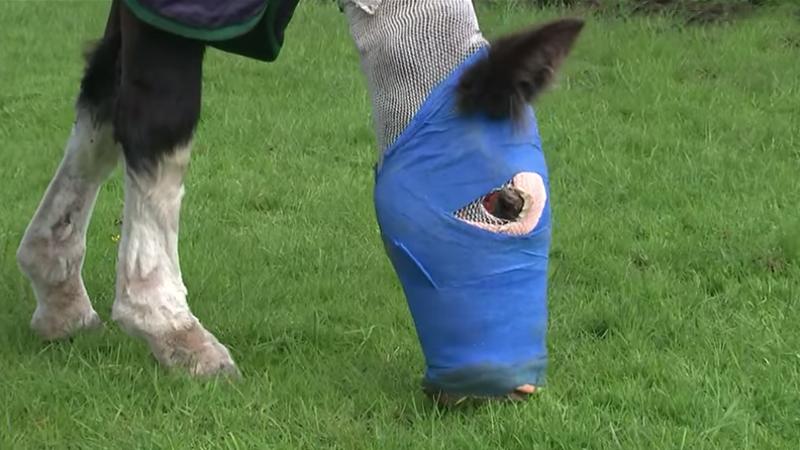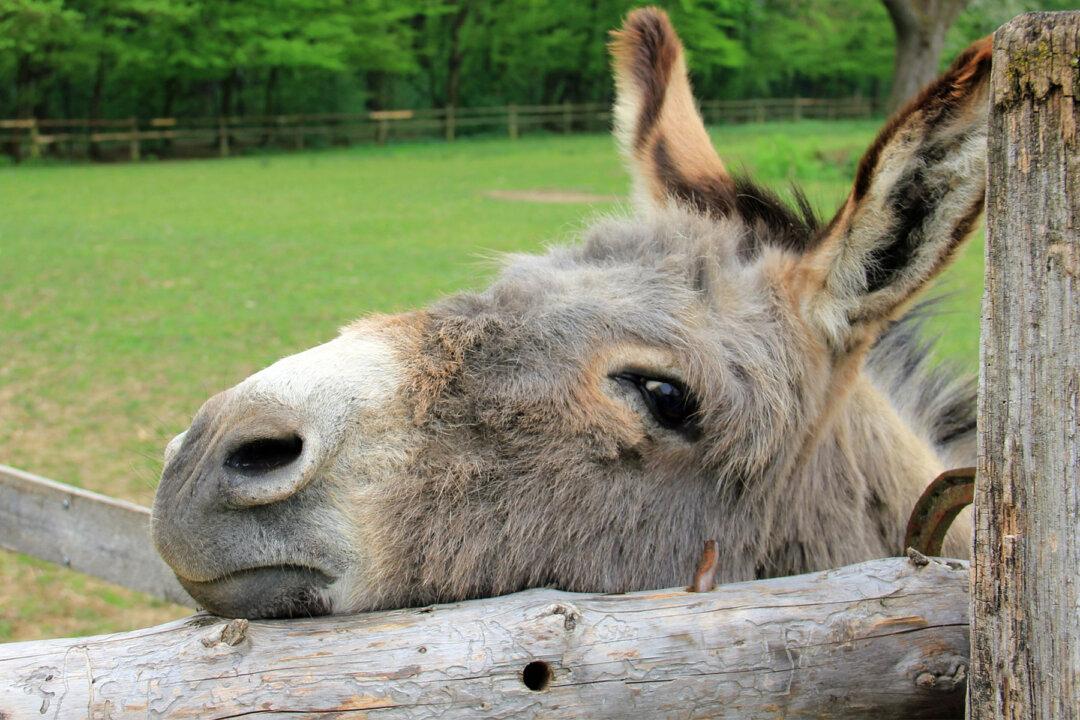An acid attack on a defenseless horse left it seriously injured in the head. If not for a pioneering treatment using fish skin, the vets may have put her down.
In May 2018, a horse was found in an appalling condition in Chesterfield, Derbyshire, England. She was in a very distressed state, covered in parasites, and suffering from chemical burns to her face, the MailOnline reported.




